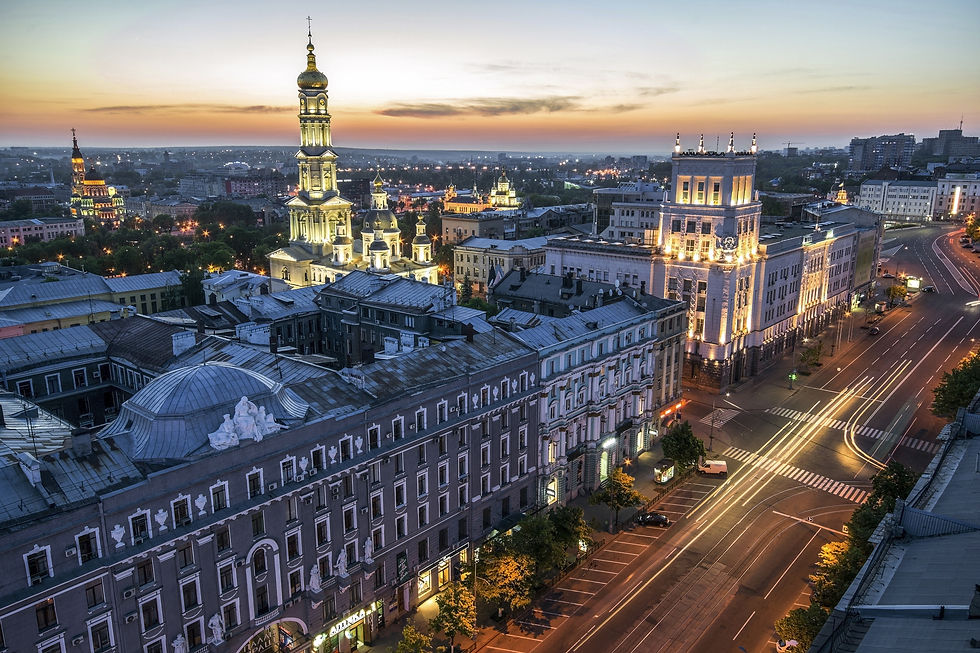Move beyond Diplomacy to Manage Khalistan Groups Abroad
- rkbhonsle
- Mar 23, 2023
- 4 min read

There is a ballooning challenge to Indian missions posed by the pro Khalistan groups in countries ranging from the United States, UK, Canada to Australia Down Under to which diplomatic reproof may not be enough. Redlisting the organisations and seeking their shut down in countries in which they have take refuge needs to be pursued vigourously.
These groups have launched violent attacks on Indian embassies and consulates exploiting lack of anticipation and weak security deployed at these with the protests being seen as an expression of resentment by a section of Sikh communities in these countries abroad.
The possibility of these groups resorting to violence was not factored thus leading to random attacks by the pro Khalistan groups who have organized themselves now to protest actions being taken against a vigilante group Waris Punjab De which has been taken over by a pro Khalistan leader Amritpal Singh who is operating above the law of the land.
The protests by Khalistan supporters in London and San Francisco were organised over the crackdown by law enforcement agencies against pro-Khalistan leader Amritpal Singh and his aides in Punjab. Both were marred by acts of violence and vandalism.
In fact the national flag at the Indian high commission in London was pulled down during a protest by pro-Khalistan activists as shown by protestors clambering on to a balcony and pulling down the Indian flag from a pole at the front of the high commission to cheers from the other men.
There is no logical reason for protests being organized to support Amritpal Singh who is a fugitive from the law and then bringing down India’s National Flag at Indian diplomatic establishment abroad as well forcing cancellations of disallowing functions by Indian diplomats due to insecurities.
India has been emphasizing provision of adequate security as per diplomatic norms and thus in the past few days the United States and the UK mission heads in Delhi have been called up.'
In a meeting with the US Charge d’Affaires in New Delhi, on March 20, India conveyed strong protest at the vandalisation of the property of the Consulate General of India, San Francisco. The US Government was reminded of its basic obligation to protect and secure diplomatic representation and asked to take appropriate measures to prevent recurrence of such incidents. “Our Embassy in Washington D.C. also conveyed our concerns to the US State Department along similar lines,” as per the Ministry of External Affairs Press release.
This was the second day in running that India registered a strong protest with a foreign mission with a country as New Delhi called in the senior-most UK diplomat in New Delhi to convey India’s strong protest at the actions taken by separatist and extremist elements against the Indian High Commission in London on March 19.
An explanation was demanded for the complete absence of the British security that allowed these elements to enter the High Commission premises the Ministry of External Affairs said in the press release.
British deputy high commissioner Christina Scott was summoned to the external affairs ministry after several videos on social media showed a Sikh man pulling down the flag outside the Indian mission in London. UK high commissioner Alex Ellis, who is away from New Delhi, denounced the incident at the Indian mission in a tweet as per the Hindustan Times.
This comes even as there is a sense that recent anti-India protests in Australia, Canada, the UK and the US appear to be coordinated by an external agency suspected to be the Inter
Services Intelligence (ISI) of Pakistan.
Beyond Diplomacy
While diplomacy is one tool to tackle the rising trend, there is a need to address the pro Khalistan groups who are active in Western countries and Australia behind these incidents in a proactive manner by countering their narrative in the media as well as the seeming clout that they enjoy with the liberal governments in place.
As per the Economic Times, there are nine groups in six nations who are behind the protests. These include Hardeep Singer Nijjar of the Khalistan Tiger Force (KTF) based in Surrey, South East London, while Gurjeet Singh Cheema of Khalistan Liberation Force (KLF) is based in Canada and Gurmeet Singh aka Bagga and Bhupinder Singh Bhind of KZF are based in Germany.
Another key ally, leader Gursharanvir Singh, is based in the UK, Gurjinder Singh is another in the group.
The three groups traced to Pakistan are Ranjeet Singh Neeta's Khalistan Zindabad Force (KZF), Wadhawa Singh Babbar's Babbar Khalsa International (BKI) and Paramjit Singh Panjwar's Khalistan Commando Force (KCF) as per the Economic Times.
Placing these groups and their leaders on the Interpol red list is a move that must be taken with sanctions on the groups and their support cohorts.
Unless action is taken beyond the diplomacy, these elements will continue to create nuisance and in turn attempt to project that there is support to the Khalistan movement in Punjab, whereas it is mainly at the fringe.
Even some religious political organisations raising their voice against the arrest of Amritpal Singh, have forsaken support to separatism.
But the fringe in India appears to have become the mainstream abroad for countries which see the act of violence against a foreign mission as an expression of dissent.
Thus to curtail this trend actions at multiple levels may be essential.



Comments